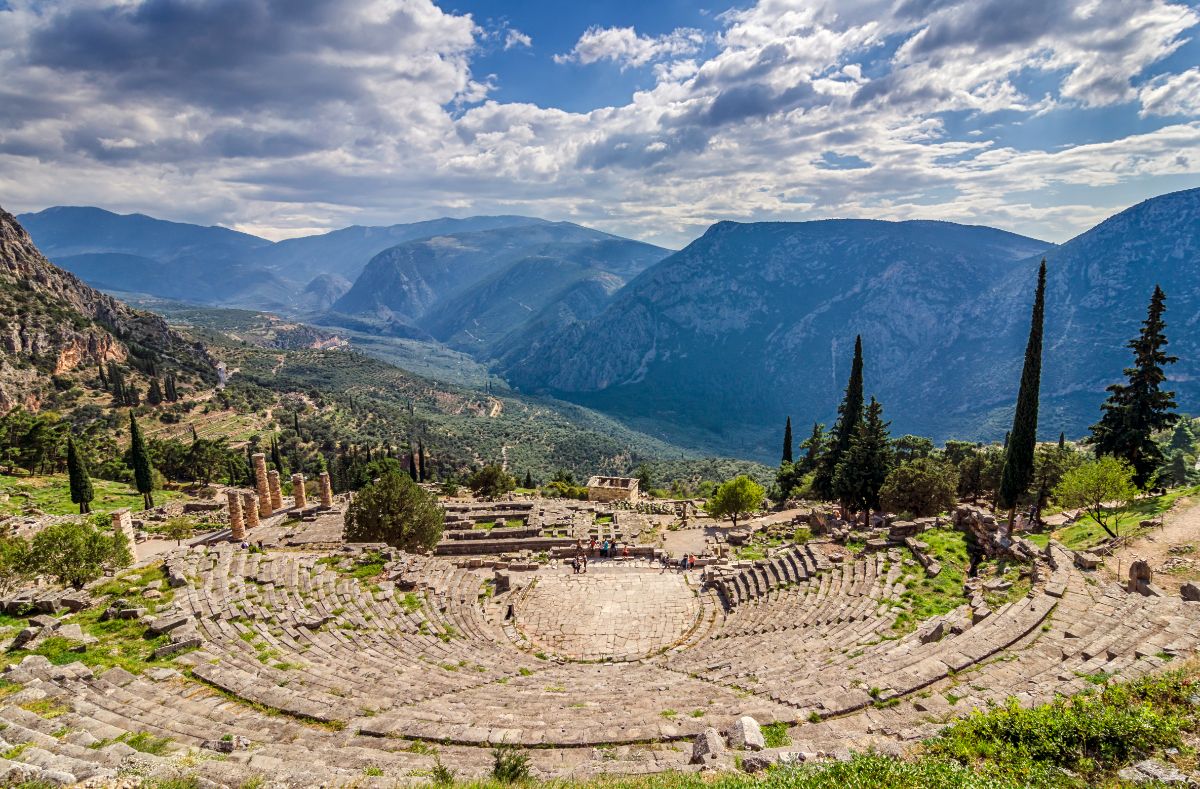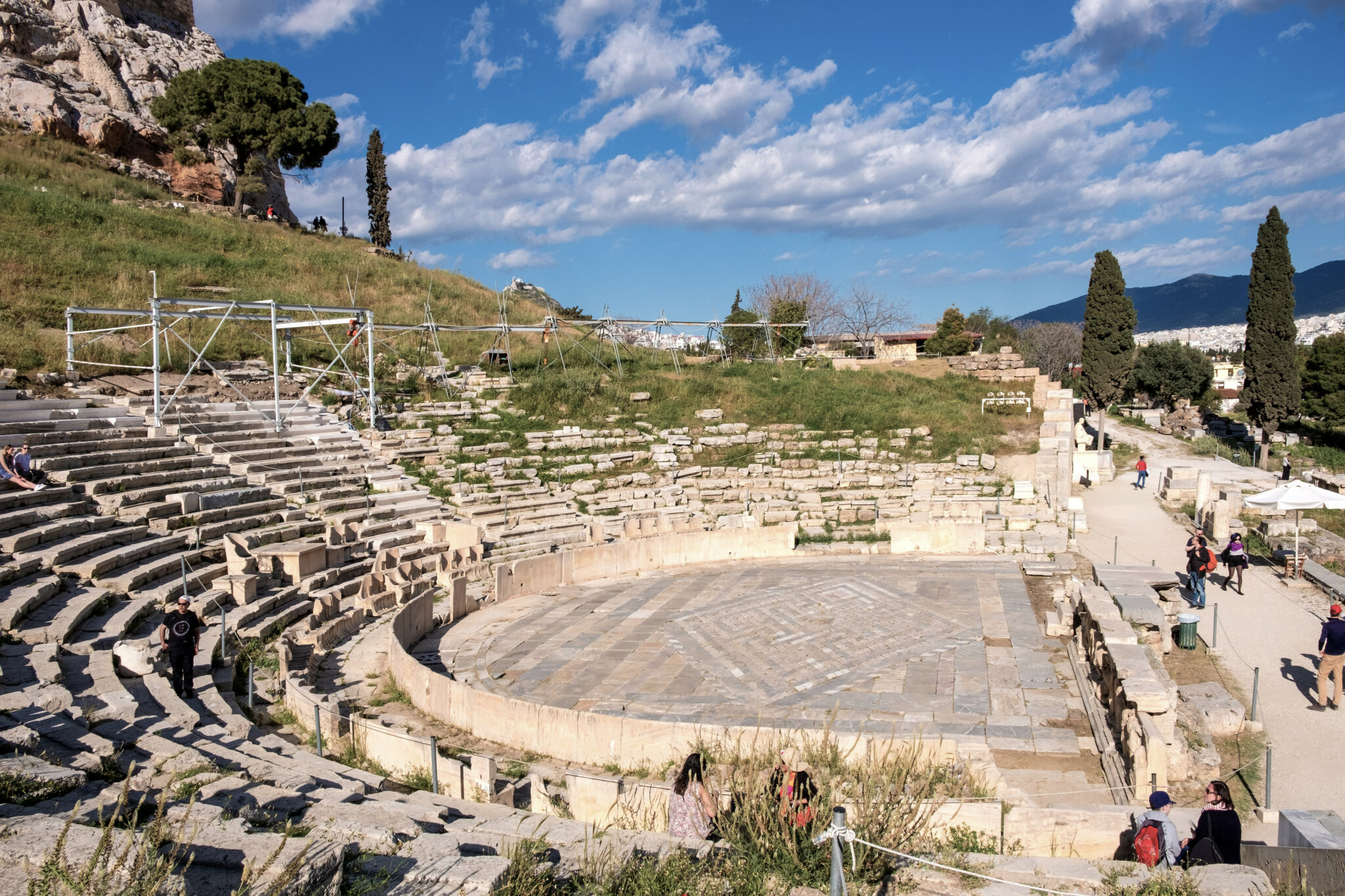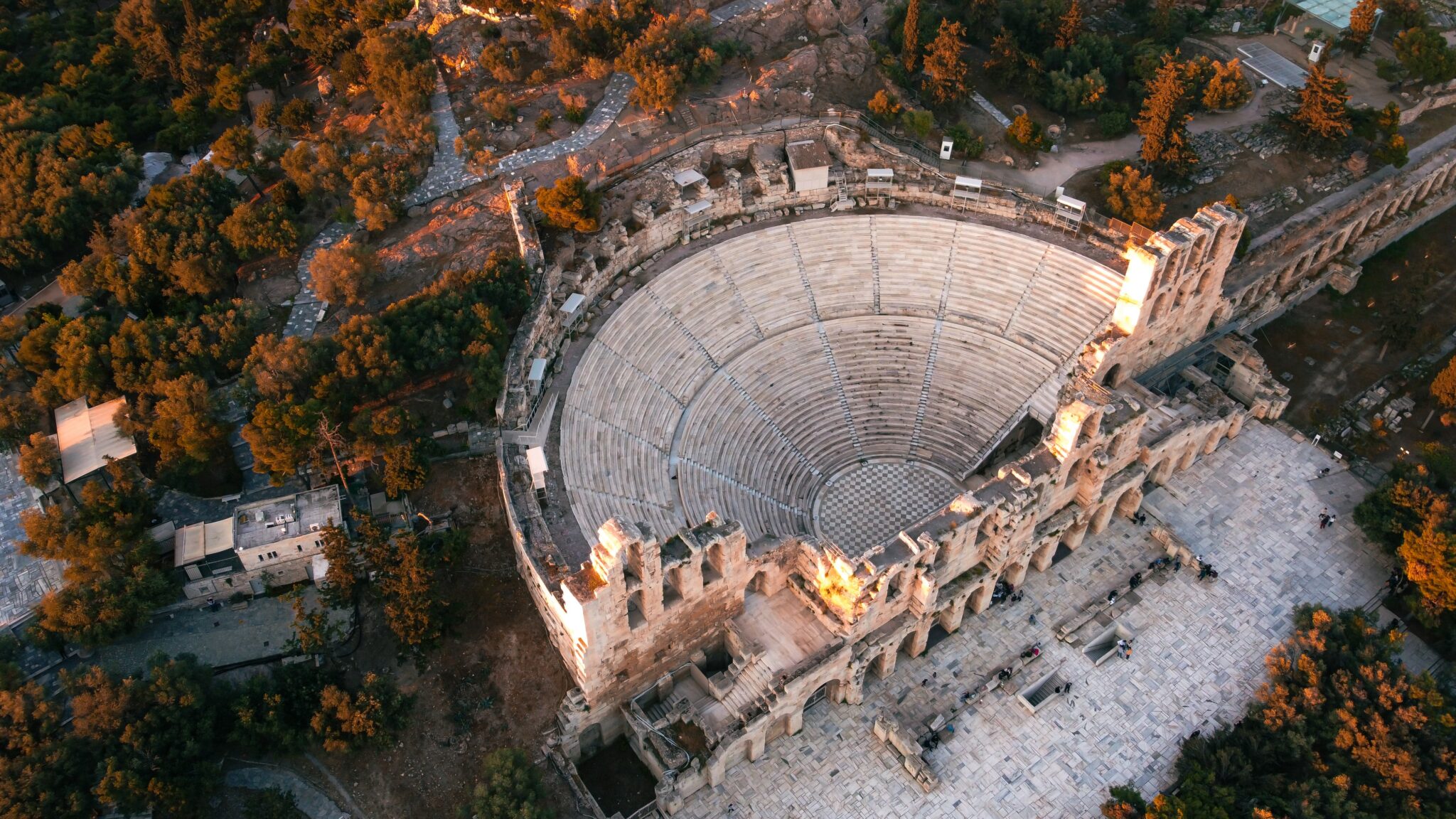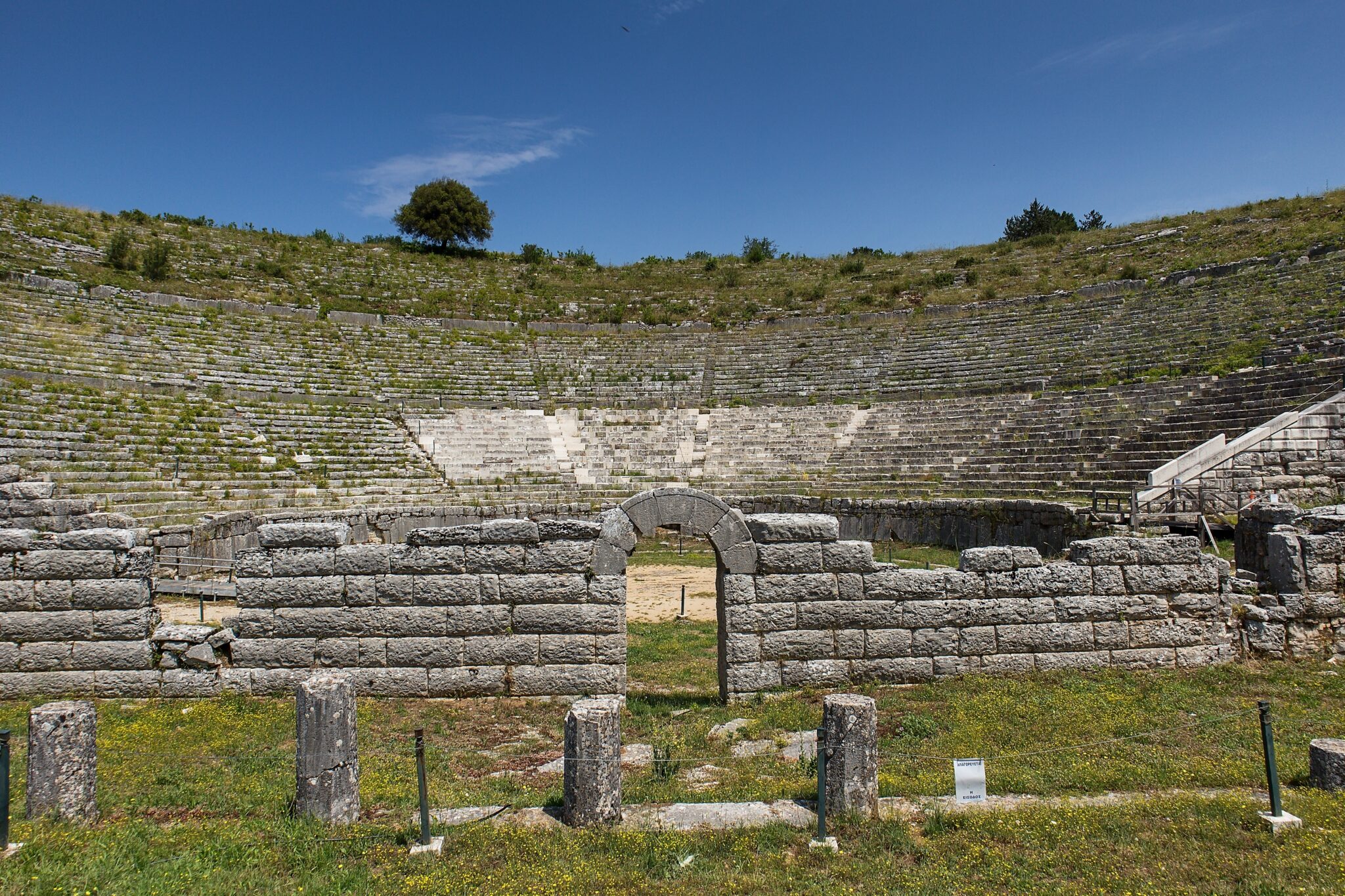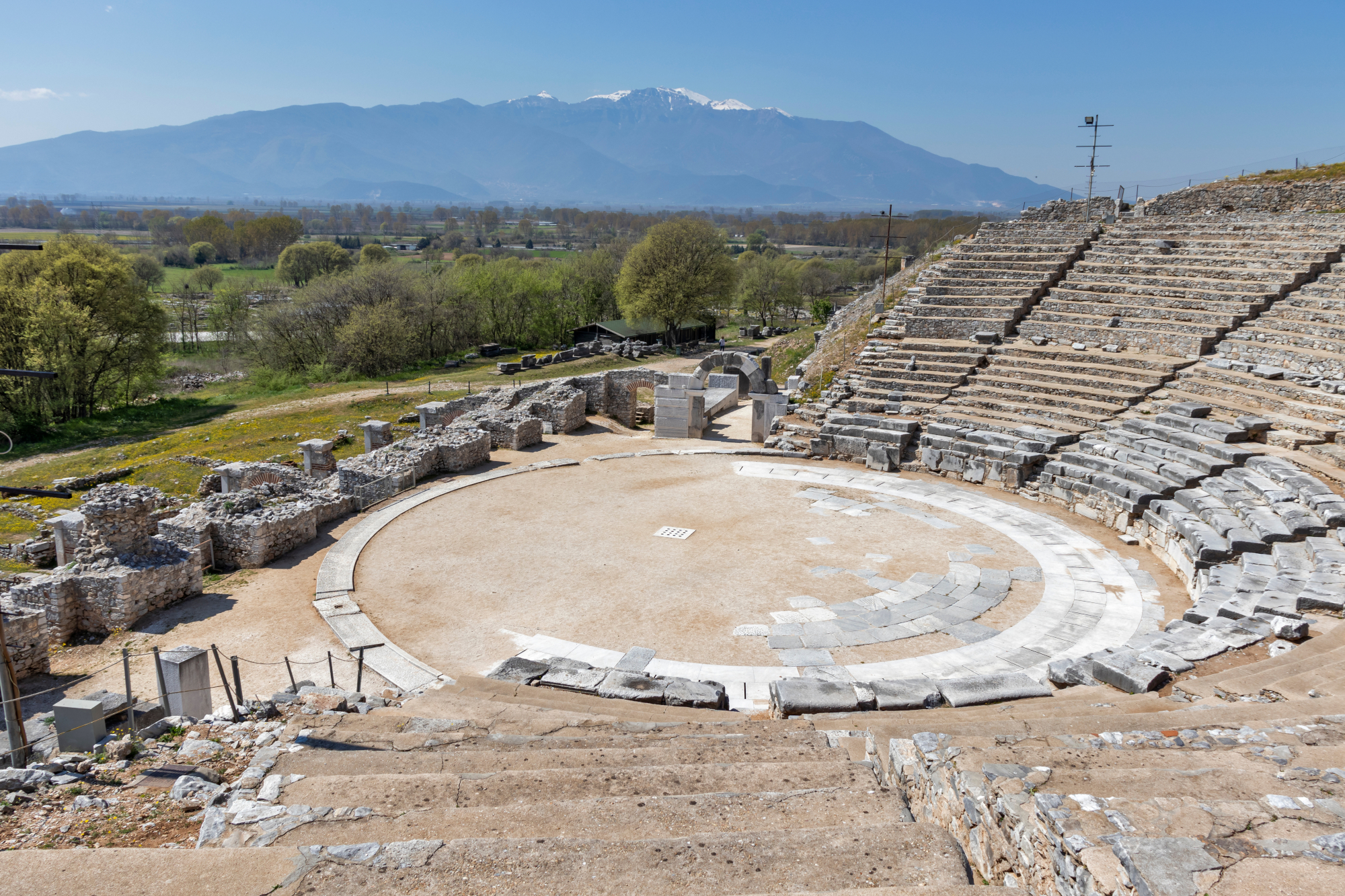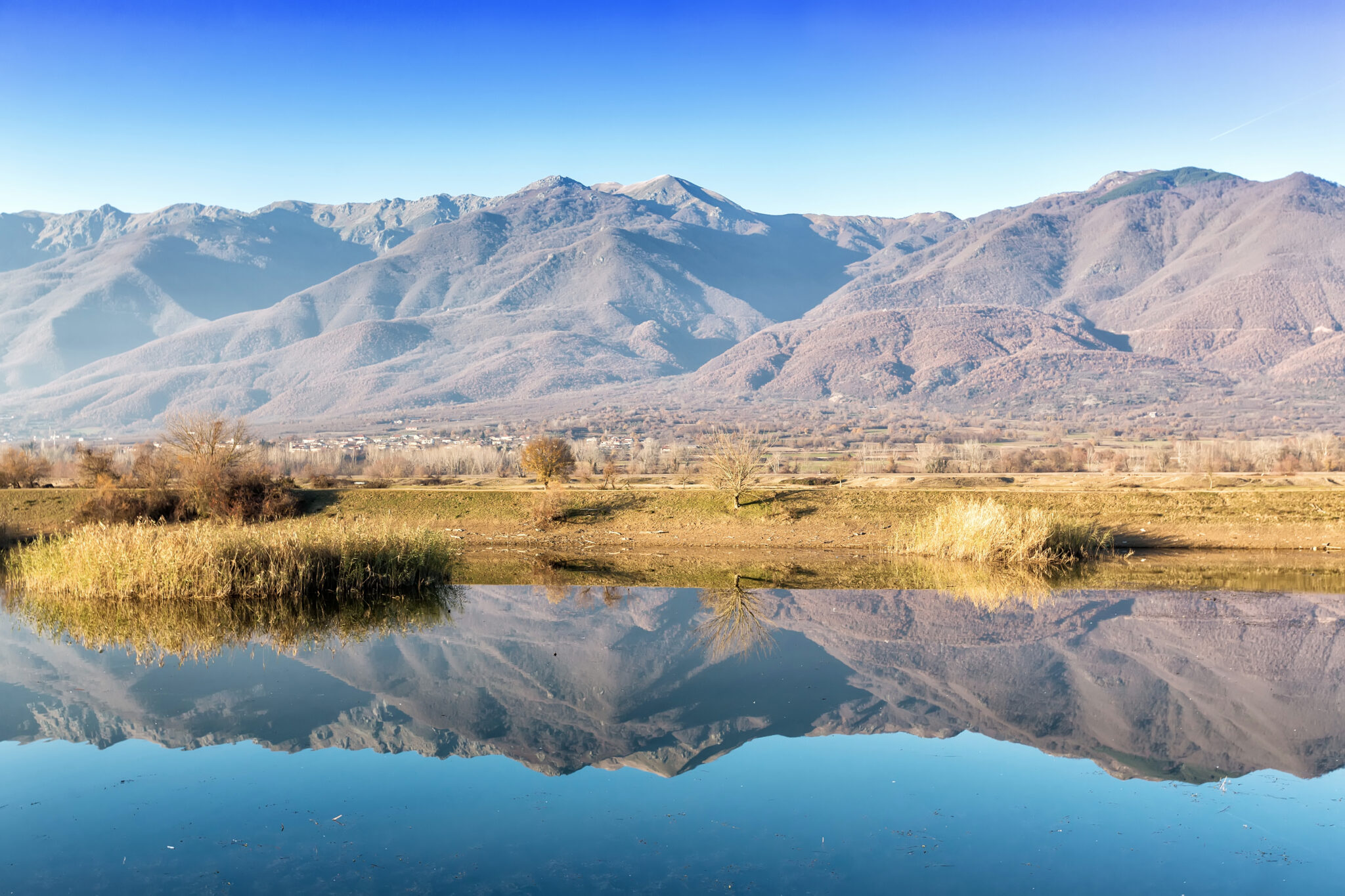Constructed thoughtfully throughout in the Mediterranean landscape, ancient theaters stand as captivating remnants of Greece’s rich cultural heritage. These theaters, with their unique architecture and aesthetics, once served as gathering places and hubs of artistic excellence but were lost or buried beneath layers of earth for centuries.
Over 100 ancient Greek theaters have been unearthed in Greece, Cyprus, Italy, and Turkey to date. While some astonish with their sheer size, others still lie in a state of unfortunate ruin.
Here, we present some of the most significant ancient Greek theaters – beyond the famous Epidaurus – that you simply must visit at least once in your lifetime. If fortune favors you, you may even have the opportunity to revel in a theatrical performance.
Theater of Delphi
With a sweeping view that is truly breathtaking, the Theater of Delphi is among the most celebrated monuments in Greece. This grand structure shares the stage with the remnants of the once-legendary oracle that held great sway in the ancient world. The ancient Theater of Delphi had a seating capacity of over 4,000 spectators and was part of a larger sanctuary dedicated to the god Apollo. Constructed around the 4th century BC, the theater assumed its current form during the early Roman Empire.
Following the Roman world’s decline, the theater lay abandoned for centuries, becoming one with the earth until French archaeologists initiated excavations in the area, unearthing the theater once again. A significant moment in the theater’s history is the effort by poet Angelos Sikelianos and his first wife, Eva Palmer, to revive the ancient splendor of Delphi by inaugurating the Delphic Festivals in 1928. Although the costly interwar festival was short-lived, it financially strained the couple but managed to bring Delphi back to the world’s attention. Today, the ancient theater serves as the venue for performances and the Delphi Festival every summer.
For many centuries after the collapse of the Roman world, the theater was abandoned and became one with the earth until French archaeologists began excavations in the area, bringing the theater back to the surface. A milestone in the theater’s history was the effort of the poet Angelos Sikelianos to restore the ancient glory of Delphi, establishing the Delphic Festivals in 1928, along with his first wife, Eva Palmer. Despite its short-lived success, the costly interwar festival financially exhausted the couple, but it did put Delphi back on the world’s radar. Today, the ancient theater hosts performances and the Delphi Festival every summer.
Theater of Dionysus, Athens
How would you feel if you could watch the works of Sophocles and Euripides in the same venue after nearly two thousand years? As fantastical as it sounds, this could be the reality at the ancient Theater of Dionysus on the South Slope of the Acropolis. The second oldest theater in Athens – after the Odeon of Herodes Atticus – is actually the city’s most ancient theater. To put it better, this is the very place where ancient Athenians first saw and heard Electra, Antigone, Iphigenia in Tauris, Medea, and many other renowned works.
Built during the years of the Peisistratids, the Theater of Dionysus is, in fact, a remnant of a much older sanctuary dedicated to Dionysus, and it remains an unsolved mystery as to when it was constructed. Throughout its history, the theater was also used for the assemblies of the Ecclesia of the Demos, while in Roman times, it was transformed into a sanctuary for bloody sacrifices until it was finally forgotten in the Byzantine era.
Although today the site is in a mediocre to poor condition – almost after a Homeric journey of restoration – the Theater of Dionysus is accessible to the public, hosting occasional scattered theatrical performances.
Dodoni Theatre, Ioannina
One of the oldest and largest ancient theaters in Greece is the one in Dodoni. Although it is not known whether Dodoni was an ancient city that was deserted or simply a mysterious ancient sanctuary in a mountain valley, it was, without a doubt, one of the most famous places in ancient Greece. On the one hand, the sanctuary with the oak tree of Zeus supposedly provided oracles to those in need, and on the other hand, the huge theater about which very little is known.
Although the largest surviving ancient theater in Greece, the ancient theater of Dodoni was completely destroyed twice in its history, once by King Dorimachos and Roman Emperor Octavian Augustus, before being permanently abandoned along with the rest of the sanctuary after barbarian invasions and a massive natural disaster that buried the site under tons of mud. Today, however, the ancient theater has resurfaced and is undergoing successive restoration phases, and sometimes during the summer months, it hosts several performances, regaining a bit of its ancient glory.
Philippi Theatre
Philippi, very close to Kavala, was one of the most important cities of Macedonia since ancient times. Its geographical location between East and West and its name were enough to make Philippi one of the largest ancient cities during Late Antiquity.
The theater of Philippi was no exception to the rule and is still one of the most famous ancient theaters in Greece, as the first theatrical performance took place in 1957 after 24 whole centuries. It is worth mentioning that the theater is one of the most luxurious remnants of ancient Greece, as the entire theater was built with 100% white marble, reflecting the importance of the theater for ancient cities. The theater of Philippi flourished at a time when most theaters had begun to decline and was greatly loved by the Romans, becoming a mini Colosseum hosting gladiators and wild animals.
Today, after many years of restoration, the theater, as well as the area of Philippi, is open to the public, hosting the Philippi Festival and various cultural events.
Read also:
Tips for your pilgrimage to Delphi
Ancient Olympia, Ancient Elis and Epicurios – Three Sites in Ilia, Greece



